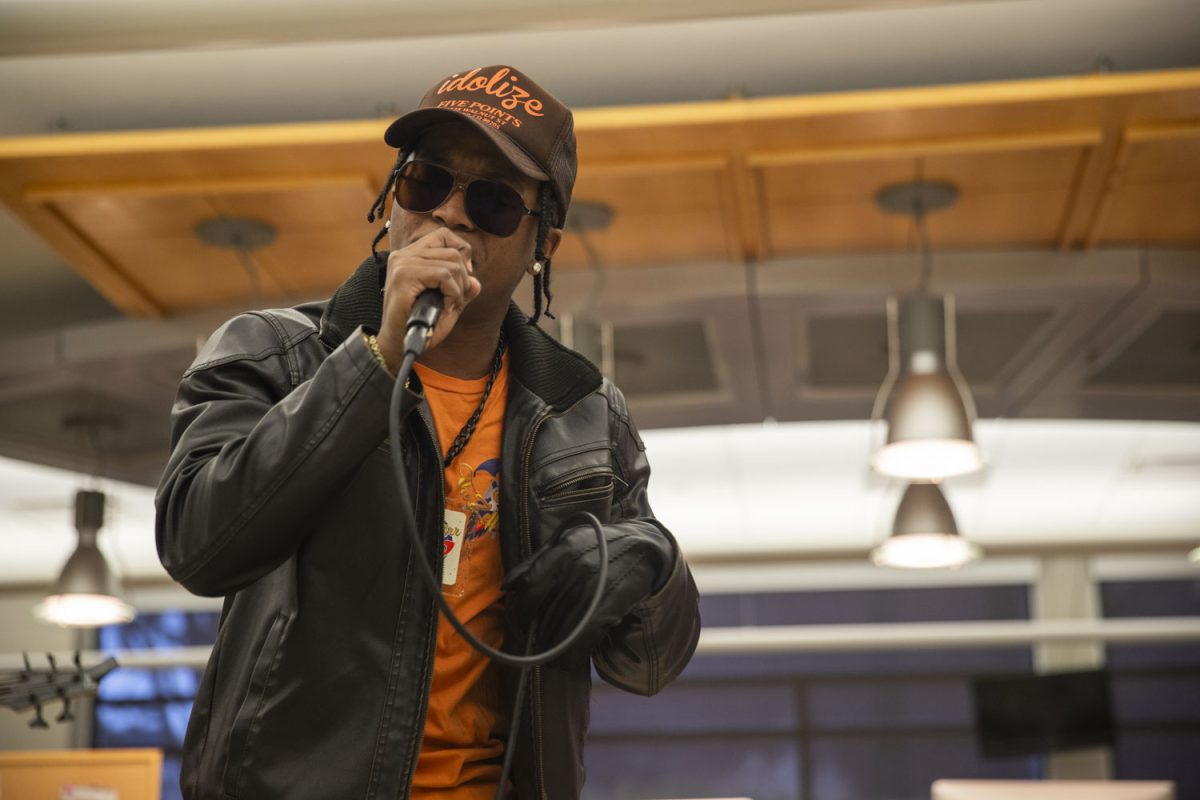As the local community continues to reach out to the world, a group of professors and students have traveled from China to Iowa to experience what Iowa City has to offer. Paul Donaldson, the coordinator of global outreach at Parkview Church, 15 Foster Road, first traveled to China with a college group in 1989. When he stayed in Wuhan, he became friends with the boy who cleaned his hotel room, and they have since kept in touch.
In 2003, Donaldson, who has been to China six times, returned to China to visit his “brother,” and the door opened up for the China Exchange Program. Since 2004, Parkview Church has sent teams every year to teach English-conversation classes for a month at the Huazhong University of Science and Technology in Wuhan.
In 2007, the Chinese university began sending groups of teachers and students to Iowa City to live in American homes, experience “real American life,” and make friends with locals for a few weeks. This year, a group of two professors and nine students flew to Iowa on July 18. Donaldson said the things they experience here are different from what the typical tourist sees.
“They have different experiences from that of the normal tourist,” he said. “They get to stay at people’s homes and see things such as the hospital. They get to make friends and build deep relationships [with Americans].” Shenglin Xu, one of the Chinese professors who traveled to Iowa, said that although he has traveled abroad many times, this trip is the first time he will stay with a local family and experience American life.
“It is just like home,” Xu said, translated from Chinese. “The hostess is very warm and hospitable to us. It’s a different place. People eat different food. It’s interesting for us to know the other culture and then build a friendly relationship on a personal level.” He said he enjoys what the University of Iowa campus and Iowa City have to offer.
“[Iowa City] seems different from the cities in China,” he said. “… life here looks more peaceful.” Xu said he found American people are straightforward; he can feel their sincerity when communicating.
Although he would prefer to eat rice, he asked to have an American-style breakfast with his host family. “It’s a precious chance to learn about American food and lifestyle,” he said. “And [the breakfast] was really good.”
Donaldson contended that Iowans don’t know much about China and Chinese people, and he noted that American host families can learn more about the country and the culture through the experience of hosting Chinese people. “I would say in general, the information that people have about China is old — like maybe China in the 1980s,” he said. “If you don’t go to China, you don’t understand how the market economy has been involved to develop from Deng Xiaoping and Shenzhen to the rest of China and then issues about freedom of religion, freedom of ideas.”
Hannah Foster, a volunteer for the group, said she is not unfamiliar with Chinese culture. She volunteers to tutor international students at the Dallas Baptist University, and she has many Chinese friends. She will also teach English at an elementary school in Beijing next summer, so she believes it is a great chance to have fun and talk with the group.
“I’m studying to be an English as a second-language teacher, so it’s good to talk to them,” she said. “And I like them. They are nice people.” Donaldson said he believes it is hard for some Americans who have lived here for two generations to not be known as foreigners.
“We are a nation of people from other countries,” he said. “If I go to China, I’m obviously a foreigner. So in that case, it’s easier for people to say, ‘You’re not from here. Let me get to know you and offer you some hospitality.’ But I could also have this situation: If you’ve lived here for two generations, and then I say, ‘Are you from China?’ Some people might get offended because they say, ‘You just assumed that I’m not American because I don’t look European.’ So some people are afraid to ask somebody if they are from another country, because they might offend them.” But Donaldson said he believes many people are interested in getting to know other cultures and building bridges among people who have lived here for a while and people who have come here to study.
“Because we can have more fun when we share our food, our culture, and so on,” he said.






